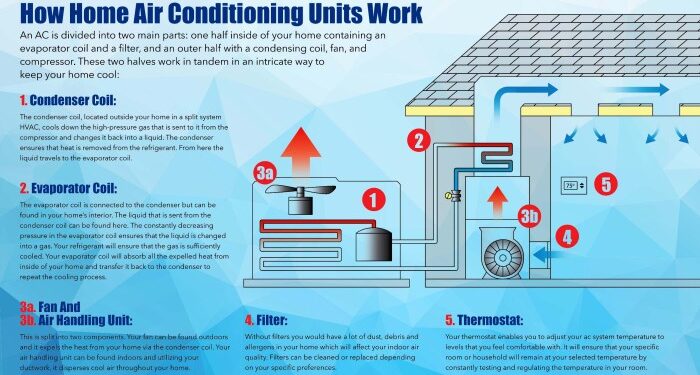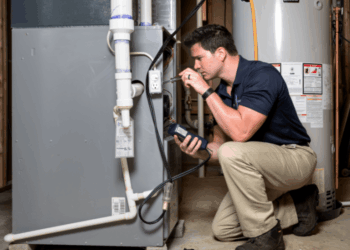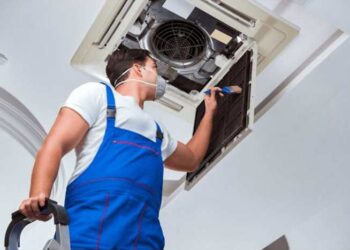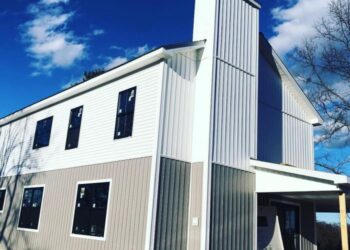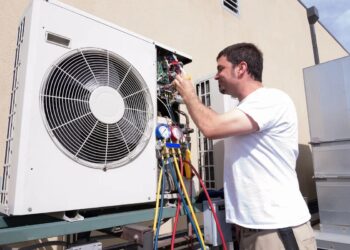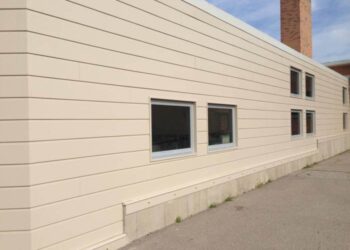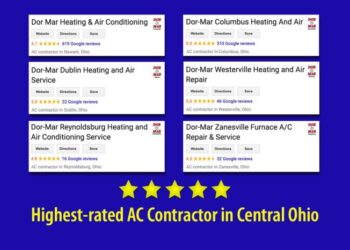When to Replace Your Central Air Conditioning System is a crucial decision that homeowners face. Understanding the signs, considerations before replacement, choosing the right size, installation process, and maintenance and care can help you make an informed choice. Let's delve into the details of each aspect to ensure you're equipped with the knowledge needed for this significant investment.
Signs It’s Time to Replace
Knowing when to replace your central air conditioning system is crucial to ensure your home stays cool and comfortable. Here are some common signs that indicate it may be time for a new system:
1. Age of the System
Central air conditioning systems typically last around 10-15 years. If your system is reaching or exceeding this age range, it may be more cost-effective to replace it rather than constantly repairing it.
2. Frequent Repairs
If you find yourself frequently calling for repairs or if the repair costs are starting to add up, it might be a sign that your system is on its last legs. Replacing it can save you money in the long run.
3. Decreased Efficiency
If you notice a significant increase in your energy bills or if your home is not as cool as it used to be, your central air conditioning system may be losing efficiency. A new system can be much more energy-efficient and cost-effective.
4. Strange Noises or Odors
Unusual noises or strange odors coming from your system can indicate underlying issues that may be beyond repair. These signs could be a signal that it's time for a replacement to ensure the safety and comfort of your home.
5. Uneven Cooling
If some rooms in your home are consistently warmer or cooler than others, it could be a sign that your system is struggling to distribute air evenly. Replacing the system can help achieve consistent and comfortable temperatures throughout your home.
Considerations Before Replacement
When deciding whether to replace your central air conditioning system, there are several key considerations to keep in mind. These factors can help you make an informed decision that will benefit your home in the long run.Advancements in technology and changes in energy efficiency standards have a significant impact on the performance and efficiency of air conditioning systems.
Understanding these factors can help you determine if it's time for a replacement.
Age of the Current System and Efficiency
One of the primary considerations before replacing your central air conditioning system is the age of the current unit. Older systems tend to be less energy-efficient and may require more frequent repairs, leading to higher operating costs. As air conditioning technology continues to improve, newer models are designed to be more energy-efficient, saving you money on your utility bills in the long term.
Advancements in Technology
Advancements in technology have led to the development of more efficient and environmentally friendly air conditioning systems. Newer models often come equipped with features such as variable-speed compressors, smart thermostats, and improved insulation, all of which contribute to better energy efficiency and overall performance.
By upgrading to a newer system, you can enjoy enhanced comfort and lower energy costs.
Energy Efficiency Ratings
When selecting a new central air conditioning system, it's important to consider its energy efficiency rating. Look for systems that are ENERGY STAR certified, as they meet or exceed strict energy efficiency guidelines set by the U.S. Environmental Protection Agency.
Choosing a system with a high SEER (Seasonal Energy Efficiency Ratio) rating can help you save money on energy bills while reducing your carbon footprint.
Choosing the Right Size
When it comes to replacing your central air conditioning system, one of the most crucial factors to consider is choosing the right size unit for your home. Correctly sizing a new AC system is essential for optimal comfort and energy efficiency.
Importance of Correct Sizing
Having an oversized or undersized air conditioning unit can have significant impacts on both comfort and energy efficiency. An oversized unit will cool your home too quickly, leading to frequent on/off cycles that can result in uneven temperatures and increased humidity levels.
On the other hand, an undersized unit will struggle to keep up with the cooling demands of your home, leading to constant running, higher energy bills, and decreased comfort.
Tips for Calculating the Right Size
- Calculate the square footage of your home: Measure the square footage of each room that will be cooled by the central air conditioning system.
- Consider other factors: Take into account factors such as ceiling height, insulation levels, window size, and orientation when calculating the cooling load of your home.
- Use the Manual J calculation: The Manual J calculation is a detailed method used by HVAC professionals to determine the correct size of an air conditioning system based on the specific cooling needs of your home.
- Consult with a professional: It is recommended to consult with a licensed HVAC contractor to perform a load calculation and recommend the right size unit for your home.
Installation Process
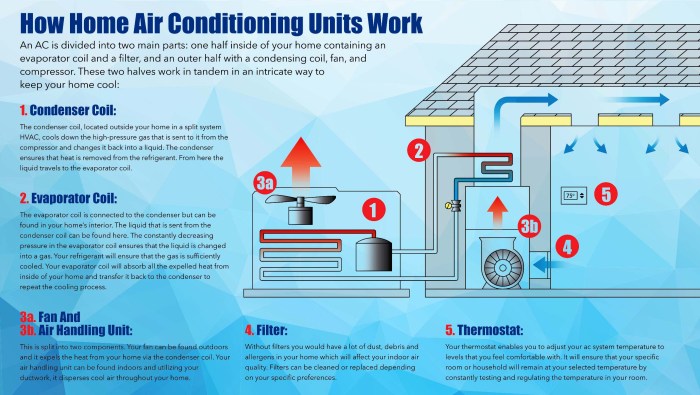
When replacing a central air conditioning system, several important steps are involved to ensure a successful installation. It is crucial to follow these steps carefully to guarantee optimal performance and efficiency of the new system.
Professional Installation
Professional installation is key to the proper functioning of your new central air conditioning system. Experts have the knowledge, skills, and tools necessary to ensure that the installation process is done correctly. This will help prevent potential issues and ensure that the system operates efficiently.
Potential Challenges and Solutions
During the installation process, some challenges may arise, such as compatibility issues with existing ductwork, electrical connections, or positioning of the new unit. It is important to address these challenges promptly to avoid any delays or complications. Consulting with a professional installer can help identify these challenges and provide effective solutions to overcome them.
Maintenance and Care
Proper maintenance and care are essential to prolonging the lifespan of your central air conditioning system and ensuring optimal performance. By following a recommended maintenance schedule and addressing issues promptly, you can keep your system running efficiently for years to come.
Recommended Maintenance Schedule and Tasks
- Regularly clean or replace air filters every 1-3 months to maintain airflow and prevent dust buildup.
- Inspect and clean the evaporator and condenser coils annually to improve efficiency and prevent overheating.
- Check and clean the drainage system to prevent clogs and water damage.
- Inspect and tighten electrical connections to ensure safety and prevent malfunctions.
- Schedule professional maintenance at least once a year to identify and address any potential issues.
Troubleshooting Common Issues
- If your system is not cooling effectively, check the air filters, thermostat settings, and refrigerant levels.
- If you notice strange noises or odors, inspect the components for loose parts or debris accumulation.
- If your system is cycling frequently or running continuously, check for a dirty filter, thermostat issues, or refrigerant leaks.
- If you experience uneven cooling or hot spots in your home, check for blocked vents, leaky ducts, or improper insulation.
When to Seek Professional Help
- If you are unable to resolve issues through basic troubleshooting, it is advisable to contact a professional HVAC technician.
- If you notice a sudden increase in energy bills or a significant decrease in cooling performance, professional help may be necessary to diagnose and fix the problem.
- If you encounter any electrical issues or strange smells coming from your system, it is crucial to seek professional assistance immediately to avoid safety hazards.
Closing Notes
In conclusion, knowing When to Replace Your Central Air Conditioning System is essential for maintaining a comfortable and energy-efficient home environment. By recognizing the signs, considering key factors, choosing the right size, ensuring proper installation, and following a maintenance plan, you can maximize the lifespan and performance of your HVAC system.
Make informed decisions to enjoy a cool and comfortable indoor space all year round.
Essential FAQs
When should I consider replacing my central air conditioning system?
You should consider replacing your central air conditioning system if it's over 10-15 years old, requires frequent costly repairs, or struggles to cool your home efficiently.
How do I determine the right size for a new central air conditioning system?
The size of the system should be based on your home's square footage, insulation, number of windows, and other factors. A professional HVAC technician can help you calculate the appropriate size.
What are some common maintenance tasks to keep my central air conditioning system running smoothly?
Regularly changing air filters, cleaning coils, checking refrigerant levels, and scheduling professional tune-ups can help prolong the lifespan and efficiency of your system.

